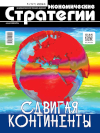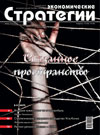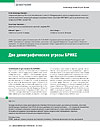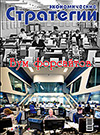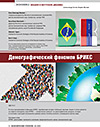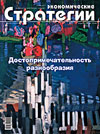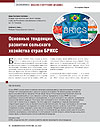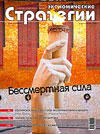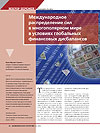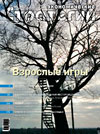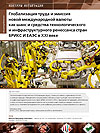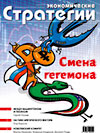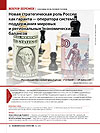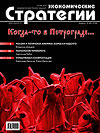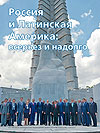Current Issues of Russian Foreign Direct Investment Exports: Monetary Mechanisms
DOI: 10.33917/es-5.197.2024.50-55
The article dwells on some current aspects of foreign direct investment (FDI) migration in Russia and abroad. The aim of the study is an attempt to theoretically reassess the role of monetary and credit mechanisms of FDI. The article provides information on the trends and pressing development problems of Russian FDI exports into the countries of Eurasian region and BRICS. According to the research, restrictive monetary policy in Russia is a significant obstacle to economic growth, foreign economic relations and FDI exports. Many economic indicators of the Russian Federation are negatively affected by the high key rate of the Bank of Russia. However, due to monopolistic structure of the Russian economy and many other factors, the restrictive monetary policy of the Central Bank of the Russian Federation often causes not only suppression of inflation and the increase in the production competitiveness, but excessive enrichment of a number of companies, banks and individuals at the expense of the economy as a whole. In the long term, in order to stimulate foreign direct investment, it seems feasible for the Bank of Russia to gradually shift from a restrictive monetary policy to a stimulating one, including for the purpose of optimal development of Russian FDI exports into the countries of the Eurasian region and BRICS.
References:
1. UNCTAD. World Investment Report. 2023. New York, United Nations, available at: https://unctad.org/system/files/official-document/wir2023_keymessages_en.pdfRRR
2. IMF. World Economic Outlook. Washington, DC. April, 2024, available at: https://www.imf.org/en/Publications/WEO/Issues/2024/04/16/world-economicoutlook-april-2024
3. Tatuzov V. Contemporary global economic crisis: Some conclusions for Russia and BRICS (taking into account Kondratieff long waves). BRICS Journal of Economics, 2020, no 1, pp. 25–40, available at: https://doi.org/10.38050/2712-7508-2020-8
4. Stiglitz J., Regmi I. The Causes and Responses to Today’s Inflation. Roosevelt Institute, 2022, available at: https://rooseveltinstitute.org/wp-content/ uploads/2022/12/RI_CausesofandResponsestoTodaysInflation_Report_202212.pdf
5. Key Rate Statistics. 2024. CBR, available at: https://www.cbr.ru/eng/hd_base/KeyRate/
6. СBR: Inflation and Consumer Sentiment. Inflation and Consumer Sentiment, 2024, no 4(88), available at: https://www.cbr.ru/Collection/Collection/ File/49132/Infl_exp_24-04_e.pdf
7. Macroeconomic survey of the Bank of Russia. October, 2024. CBR, available at: https://www.cbr.ru/eng/statistics/ddkp/mo_br/
8. FDI Database. 2024. New York, UNCTAD, available at: https://unctadstat.unctad.org/datacentre/dataviewer/US.FdiFlowsStock
9. The State Council on further optimizing the environment for foreign investment. Opinions on increasing efforts to attract foreign investment. Guo Fa, 2023, no 11, available at: https://www.gov.cn/zhengce/content/202308/content_6898048.htm
10. FDI database. Paris, OECD, 2024, available at: https://data.oecd.org/fdi/fdi-flows.htm


